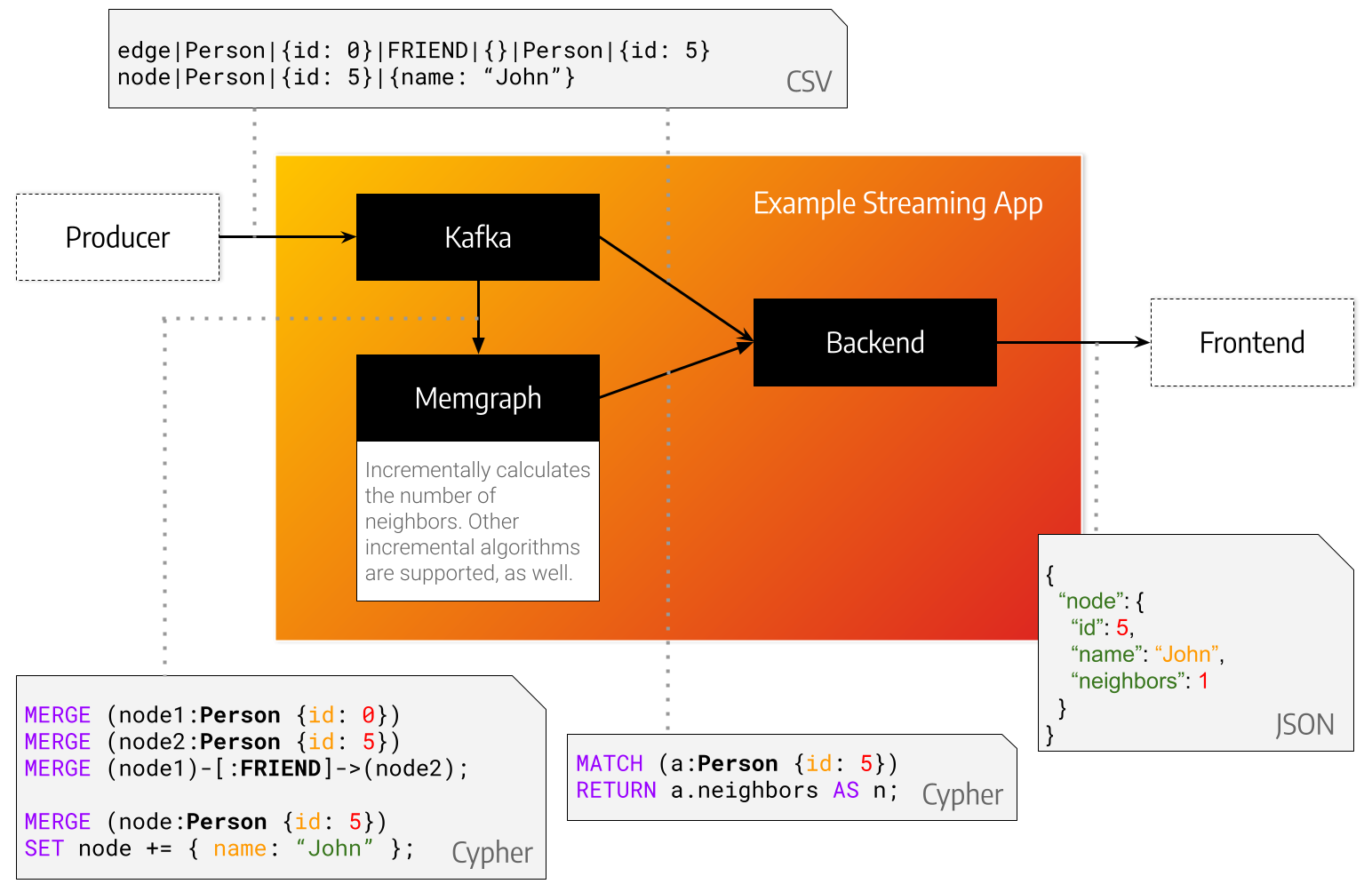tfrecord-rust
The crate provides the functionality to serialize and deserialize TFRecord data format from TensorFlow.
Features
- Provide both high level
Exampletype as well as low levelVec<u8>bytes {,de}serialization. - Support async/await syntax. It's easy to work with futures-rs.
- Interoperability with serde, image, ndarray and tch.
- TensorBoard support.
Usage
Use this crate in your project
Append this line to your Cargo.toml.
tfrecord = "0.5"
Notice on TensorFlow updates
The crate compiles the pre-generated ProtocolBuffer code from TensorFlow. In case of TensorFlow updates or custom patches, please run the code generation manually, see Generate ProtocolBuffer code from TensorFlow section for details.
Available Cargo features
Module features
full: Enable all features.async_: Enable async/await feature.dataset: Enable the dataset API that can load records from multiple TFRecord files.summary: Enable the summary and event types and writters, mainly for TensorBoard.
Third-party crate support features
with-serde: Enable support with serde crate.with-image: Enable support with image crate.with-ndarray: Enable support with ndarray crate.with-tch: Enable support with tch crate.
Documentation
See docs.rs for the API.
Example
File reading example
This is a snipplet copied from examples/tfrecord_info.rs.
use tfrecord::{Error, ExampleReader, Feature, RecordReaderInit};
fn main() -> Result<(), Error> {
// use init pattern to construct the tfrecord reader
let reader: ExampleReader<_> = RecordReaderInit::default().open(&*INPUT_TFRECORD_PATH)?;
// print header
println!("example_no\tfeature_no\tname\ttype\tsize");
// enumerate examples
for (example_index, result) in reader.enumerate() {
let example = result?;
// enumerate features in an example
for (feature_index, (name, feature)) in example.into_iter().enumerate() {
print!("{}\t{}\t{}\t", example_index, feature_index, name);
match feature {
Feature::BytesList(list) => {
println!("bytes\t{}", list.len());
}
Feature::FloatList(list) => {
println!("float\t{}", list.len());
}
Feature::Int64List(list) => {
println!("int64\t{}", list.len());
}
Feature::None => {
println!("none");
}
}
}
}
Ok(())
}
Work with async/await syntax
The snipplet from examples/tfrecord_info_async.rs demonstrates the integration with async-std.
use futures::stream::TryStreamExt;
use std::{fs::File, io::BufWriter, path::PathBuf};
use tfrecord::{Error, Feature, RecordStreamInit};
pub async fn _main() -> Result<(), Error> {
// use init pattern to construct the tfrecord stream
let stream = RecordStreamInit::default()
.examples_open(&*INPUT_TFRECORD_PATH)
.await?;
// print header
println!("example_no\tfeature_no\tname\ttype\tsize");
// enumerate examples
stream
.try_fold(0, |example_index, example| {
async move {
// enumerate features in an example
for (feature_index, (name, feature)) in example.into_iter().enumerate() {
print!("{}\t{}\t{}\t", example_index, feature_index, name);
match feature {
Feature::BytesList(list) => {
println!("bytes\t{}", list.len());
}
Feature::FloatList(list) => {
println!("float\t{}", list.len());
}
Feature::Int64List(list) => {
println!("int64\t{}", list.len());
}
Feature::None => {
println!("none");
}
}
}
Ok(example_index + 1)
}
})
.await?;
Ok(())
}
Work with TensorBoard
This is a simplified example of examples/tensorboard.rs that sends summary data to log_dir directory. After running the example, launch tensorboard --logdir log_dir to watch the outcome in TensorBoard.
use super::*;
use rand::seq::SliceRandom;
use rand_distr::{Distribution, Normal};
use std::{f32::consts::PI, io, thread, time::Duration};
use tfrecord::EventWriterInit;
pub fn _main() -> Result<()> {
// show log dir
let prefix = "log_dir/my_prefix";
// download image files
println!("downloading images...");
let images = IMAGE_URLS
.iter()
.cloned()
.map(|url| {
let mut bytes = vec![];
io::copy(&mut ureq::get(url).call().into_reader(), &mut bytes)?;
let image = image::load_from_memory(bytes.as_ref())?;
Ok(image)
})
.collect::<Result<Vec<_>>>()?;
// init writer
let mut writer = EventWriterInit::from_prefix(prefix, None)?;
let mut rng = rand::thread_rng();
// loop
for step in 0..30 {
println!("step: {}", step);
// scalar
{
let value: f32 = (step as f32 * PI / 8.0).sin();
writer.write_scalar("scalar", step, value)?;
}
// histogram
{
let normal = Normal::new(-20.0, 50.0).unwrap();
let values = normal
.sample_iter(&mut rng)
.take(1024)
.collect::<Vec<f32>>();
writer.write_histogram("histogram", step, values)?;
}
// image
{
let image = images.choose(&mut rng).unwrap();
writer.write_image("image", step, image)?;
}
thread::sleep(Duration::from_millis(100));
}
Ok(())
}
More examples
To read values from event files used by TensorBoard, you can see the event reader example.
More examples can be found in examples and tests directories.
Generate ProtocolBuffer code from TensorFlow
The crate relies on ProtocolBuffer documents from TensorFlow. The crate ships pre-generated code from ProtocolBuffer documents by default. Most users don't need to bother with the code generation. The step is needed only in case of TensorFlow updates or your custom patch.
The build script accepts several ways to access the TensorFlow source code, controlled by the TFRECORD_BUILD_METHOD environment variable. The generated code will be placed under prebuild_src directory. See the examples below to understand the usage.
- Build from a source tarball
export TFRECORD_BUILD_METHOD="src_file:///home/myname/tensorflow-2.2.0.tar.gz"
cargo build --release --features serde,generate_protobuf_src # with serde
cargo build --release --features generate_protobuf_src # without serde
- Build from a source directory
export TFRECORD_BUILD_METHOD="src_dir:///home/myname/tensorflow-2.2.0"
cargo build --release --features serde,generate_protobuf_src # with serde
cargo build --release --features generate_protobuf_src # without serde
- Build from a URL
export TFRECORD_BUILD_METHOD="url://https://github.com/tensorflow/tensorflow/archive/v2.2.0.tar.gz"
cargo build --release --features serde,generate_protobuf_src # with serde
cargo build --release --features generate_protobuf_src # without serde
- Build from installed TensorFlow on system. The build script will search
${install_prefix}/include/tensorflowdirectory for protobuf documents.
export TFRECORD_BUILD_METHOD="install_prefix:///usr"
cargo build --release --features serde,generate_protobuf_src # with serde
cargo build --release --features generate_protobuf_src # without serde
License
MIT license. See LICENSE file for full license.





